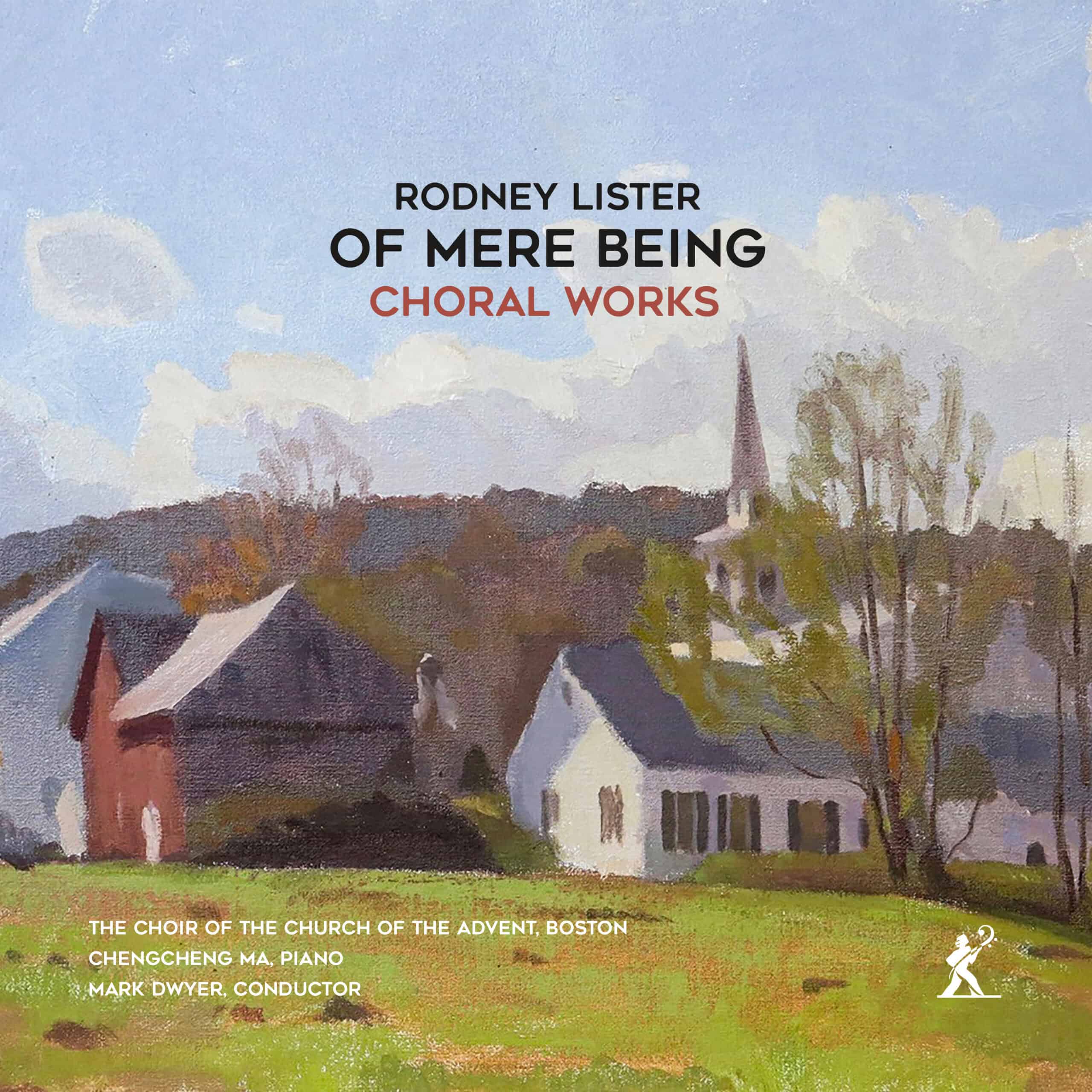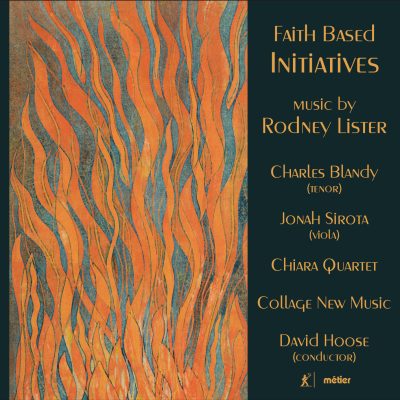Rodney Lister: Of Mere Being
Rodney Lister’s Choral Works: A Journey Through Text, Harmony and Expression
Rodney Lister’s choral compositions represent a remarkable synthesis of literary sensitivity, harmonic sophistication, and an abiding commitment to vocal expressivity. This recording offers a collection of Lister’s works composed over several decades for the chorus of Greenwood Music Camp, a summer program with which he has been deeply involved as a composer, pianist, and mentor. The repertoire featured here provides a rare and illuminating perspective on the evolution of his choral writing, spanning from early diatonic and modal explorations to later works of greater harmonic intricacy.
Lister’s deep engagement with text is evident throughout this collection. Drawing upon poets such as Wallace Stevens, Gertrude Stein, and others, his settings bring out the rhythm, colour, and nuance of the language in ways that feel both natural and revelatory. Early works embrace clarity and directness, allowing the shape and syntax of the poetry to guide musical decisions, while later pieces exhibit a denser harmonic language that reflects his affinity for figures like Virgil Thomson and even the chromatic daring of composers such as Gesualdo. Throughout, his choral textures remain vibrant and varied, capable of both luminous transparency and rich complexity.
A defining characteristic of Lister’s music is his ability to balance tradition and innovation. He employs familiar harmonic structures yet subtly subverts expectations, allowing triadic formations to shift and realign in ways that create an ever-changing sense of musical space. The result is music that feels both grounded and pleasingly unpredictable, continually engaging the listener in an unfolding dialogue between stability and transformation. His approach to choral writing is informed by his experience as both a composer and pianist, ensuring that every line is singable, every phrase thoughtfully shaped, and every harmonic progression imbued with a keen sense of dramatic pacing.
This recording not only highlights Lister’s distinctive compositional voice but also captures his deep personal investment in the choral medium. His long-standing association with Greenwood Music Camp and other ensembles has allowed him to refine his craft in a setting that fosters both artistic rigor and communal engagement. The performances here reflect that intimate understanding between composer and ensemble, bringing his works to life with clarity, warmth, and expressive depth. For those interested in contemporary choral music that bridges past and present, intellect and emotion, structure and spontaneity, Lister’s choral works offer a rewarding experience.
Track Listing
- Toward a Supreme Fiction (1:34)
- A Clear Day and No Memories (1:32)
- The Snowman (2:00)
- Another Weeping Woman (1:27)
- The Palm at the End of the Mind (1:30)
- Never Give All the Heart (1:47)
- Vanishing Point (4:40)
- To the Harbormaster (3:26)
- A Downward Look (2:30)
- The Lost Feed (3:46)
- Stanza XV (2:48)
- Stanza XVI (0:49)
- Stanza XXXVIII (1:25)
- On the Road Home (2:37)
- To the Republic (4:35)
- Pasture Poem (1:33)
- Measuring Worm (3:53)
- Green trimmed (1:27)
- To a Waterfowl (7:48)
- The Bees (4:12)
- Our Revels Now Are Ended (1:49)
Reviews
“This is some of the finest choral writing from a living composer I have heard in years. This is powerful, varied music, a masterclass in how to set poetry, heard in the strongest possible performances.
” —Colin Clarke
“The Choir of the Church of the Advent, Boston, and pianist Chengcheng Ma, led by conductor Mark Dwyer, perform the Lister works in exemplary fashion, with clear diction and a lovely, exquisitely blended sonority. Recommended.
” —Ken Melder
“The performances by the Choir of the Church of the Advent in Boston, conducted by Mark Dwyer, are technically impeccable and do full justice to Lister’s inspirations. Mention should also be made of the accompanist, Chengcheng Ma, who shapes, bends, and phrases the music impeccably while fulfilling his duty to support the chorus. Each piece is moving in its own way, and together they make up a whole that’s greater than the sum of its parts. Warmly and engagingly recommended.
” —Mark Gabrish Conlan













